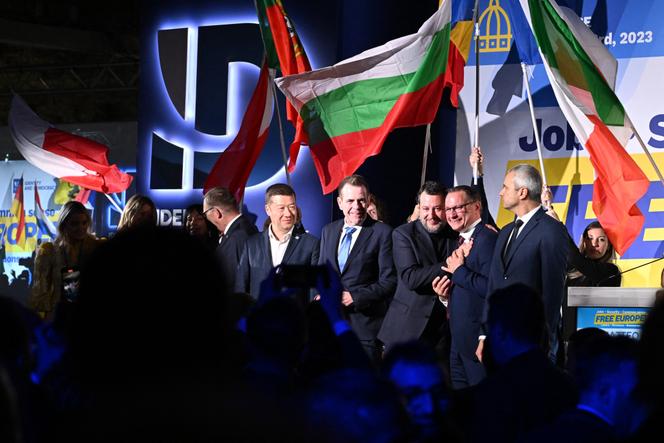


In early February, a note from Marine Le Pen appeared on the WhatsApp group for leaders of the Rassemblement National (RN) party. She expressed surprise at the announcement by the European party Identity and Democracy (ID) that it was being joined by the Bulgarian party Vazrajdane, which is notoriously close to Vladimir Putin. The subject of the war in Ukraine was then at a lull in French political discourse, but the far-right leader rightly sensed that it would come up again before the European elections on June 9 and that there was no point in providing easy targets to those who, like Prime Minister Gabriel Attal, consider Le Pen and her party to be "Vladimir Putin's troops" in France.
But Le Pen, like RN President Jordan Bardella, is a member of the top committee of this transnational alliance, which acts as the antechamber for the RN's group in the European Parliament, which has the same name. Vazrajdane leader Kostadin Kostadinov, known for his homophobic and anti-Semitic provocations, shared a stage with Bardella at an ID party rally in Florence, in December 2023.
Can Le Pen deny any complicity with the Putin regime a,d at the same time choose the Kremlin's powerhouses in Europe as her allies? In addition to their hostility to immigration and European integration, the members of the potential ID parliamentary group, which could become the third strongest force in the Parliament after the June 9 vote, share a soft spot for Russia's regime.
This is a source of concern for some RN figureheads, who are tired of their image as Putin's mouthpiece in France, as well as for the ID party's Danish and Estonian members, who are very sensitive to the issue. On Wednesday, February 28, ID leaders met at their request to decide on the membership of the Slovak National Party (SNS) and the Bulgarian party Vazrajdane, announced a month earlier. They decided to cancel a conference planned in Sofia and to hear Kostadinov before possibly reviewing their inclusion within the European party.
On February 16, three members of Vazrajdane, which means Renaissance, traveled to Moscow for an event organized by Putin's United Russia party, to "build bridges" between the two countries. They listened to Putin lecture on the "neo-colonialism of the collective West" and they "discussed the possibility of training diplomats" from Bulgaria at the Russian Foreign Ministry. Facing backlash, Kostadinov defended his party's officials against what he calls "the millions of Euro-Atlantic microbes."
You have 55.81% of this article left to read. The rest is for subscribers only.
